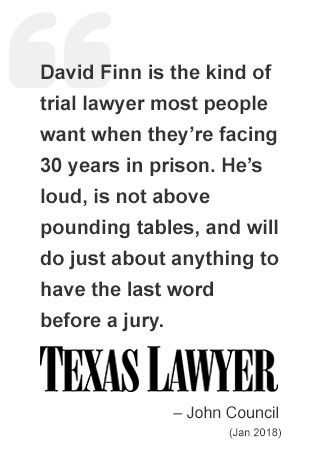


If You Can’t Argue the Facts: Observer Story Re: Jail
If You Can’t Argue the Facts…
Plus: Every Picture Tells a Story
Published: Thursday, August 4, 2005
Dallas Observer, Matt Pulle
If You Can’t Argue the Facts…
County commissioners go to comical lengths to suppress jail study
Last March, George Rodrigue, the managing editor of The Dallas Morning News, received a rather stern letter from a high-paid private attorney representing Dallas County. Aggrieved that reporter Jim O’Neill documented the blistering findings of an outside study of the county jail, Ernest Figari of the corporate law firm Figari & Davenport wrote that the report was confidential and should not be discussed in the pages of a newspaper.
“It is unclear to me at this time how Mr. James M. O’Neill received the Report, but it’s [sic] release was not authorized by the Commissioners Court, the County, or their legal counsel,” read the letter, which actually was authorized by the county.
Figari, paid $450 an hour by the county, then requested that the newspaper return the report and all copies to him “immediately.”
The lawyer’s letter didn’t exactly achieve its desired effect. Rather than deliver all copies of the jail report to the law firm, the Morning News instead posted it on its Web site for the entire wired universe to read. Figari & Davenport filed an emergency application for a temporary restraining order barring the paper from broadcasting the report, but a judge rejected it. Meanwhile, the paper’s own attorney had a rejoinder to Figari’s First Amendment-challenged letter. “The News has no intention to surrender any source material acquired in the course of meeting its obligation to report on this matter of public concern.”
Since the release of the outside study of the Dallas County jail, the county commissioners and their legal help have gone to absurd lengths to control how it is used, as if they could possibly bury the scathing findings about a taxpayer-funded facility. They have failed miserably. Recently the county argued in federal court that lawyers for an inmate who went without water for nearly two weeks cannot make any reference to the jail report in their lawsuit. That might have something to do with how the report clearly corroborates the broad themes of their complaint. It doesn’t really matter; on Friday, U.S. Magistrate Judge Jeff Kaplan rejected the county’s petition.
Funded by the Meadows Foundation, the jailhouse report chronicled several cases in which the staff ignored the urgent medical needs of chronically ill inmates. In one case, an inmate displayed abnormal symptoms indicating a variety of chronic illnesses, but he was not properly diagnosed for six weeks. After he was belatedly examined, nobody took the time to evaluate his medical tests. He had no follow-up examination. Several days later, unable to breathe, he was rushed to the hospital and later died. The report cited another inmate who was hospitalized 10 times over a six-month period because the medical staff failed to care for a leg infection. Written by Michael Puisis, the former medical director of the Cook County Jail in Chicago, the report described a pattern of health care at the jail as a “form of systemic incompetence.”
On December 30, 2004, lawyers for three inmates who did time at the jail filed a lawsuit alleging sweeping patterns of neglect that resulted in at least one death. Clarence Lee Grant was a 51-year-old paranoid schizophrenic who failed to receive his prescribed medication for nearly a week. Days later the jail’s medical staff noticed that he looked confused, depressed, dehydrated and weak, but they did not take him to see a doctor. Grant’s sister visited him in jail and was horrified by his condition. He could barely talk. Two days later, Grant died in his cell.
Another inmate represented in the suit, James Mims, suffered renal failure after water was turned off in his cell for 13 days.
Clearly, the independent study of the jail is a boon to the plaintiff’s attorneys because it provides outside corroboration of the facility’s dismal track record.
“We think the report itself is the best evidence,” says Fort Worth attorney Jeff Kobs, who represents the plaintiffs.
So the county did everything it could to keep the report out of the public’s hands.
Shortly after the report was completed, Morning News reporter O’Neill filed a written request asking for it to be released. It was denied. O’Neill has sources in the right places, however, and got a copy anyway. The District Attorney’s Office investigated how the reporter obtained the document but came up with nothing. Months later, attorney Dennis Lynch, paid $250 an hour by the county, said that the chief question is how the report got to The Dallas Morning News, though U.S. Magistrate Judge Jeff Kaplan wasn’t inclined to go along.
“I am not prepared to incarcerate any reporters” in order to find out what happened, he said.
Having abjectly failed to keep the report buried, the county then tried to prevent the plaintiffs’ lawyers from using its findings. After the plaintiffs’ lawyers included it in an appendix to their suit, Figari & Davenport filed a motion asking the court to restore the privileged nature of the jail study and prevent the plaintiffs from referring to it. On Friday, July 22, Lynch argued in federal court that the jail study was the “work product” of the county. Work product is a legal term that refers to the research, opinions and strategy of a lawyer or party in a lawsuit that is exempt from discovery. The jail study should remain confidential, Lynch argued, because it was prepared in response to the looming Mims case.
“It was clearly done in anticipation of the litigation that brings us here today,” said the 36-year-old Lynch. That’s an odd claim since the jail report makes no mention of the Mims case. Lynch also argued that even though the News posted the report on its Web site, the county did everything it could to keep it confidential.
One problem, however, is that since that hearing, Lynch’s own clients have seemed to refute his point. In an interview with the Dallas Observer, County Judge Margaret Keliher, who initiated the report, says flat-out that it was done “in anticipation of litigation, not just the Mims case.” In other words, the commissioners weren’t just worried about the Mims case, but other lawsuits that have befallen the jail for years. That’s not a fine point–if the origins of the report are more general in nature, it’s tough to argue that it should be privileged for a specific case.
Then there’s Commissioner Mike Cantrell. He says the commissioners mandated the report because former Sheriff Jim Bowles and the jail’s medical provider, the University of Texas Medical Branch at Galveston, were not exactly the best source on how the jail was being run. “We had a sheriff who would not allow us access to the jail, and we had a vendor who could not disclose information because of [patient privacy] rules,” he says. “So how else were we going to get information about the jail?”
He may be right, but that’s the same exact argument opposing attorneys made. Interestingly, when I left a voicemail for Commissioner Maurine Dickey asking about conditions at the Dallas County jail, she encouraged me to read the report on The Dallas Morning News Web site. So how is this report confidential?
Judge Kaplan couldn’t figure it out either. On Friday, a week after he heard the motion, he rejected the county’s plea and placed the commissioners and their legal counsel in the unenviable position of having to argue the facts in the case.
–Matt Pulle
Phone Numbers
Office: (214) 538-6629







